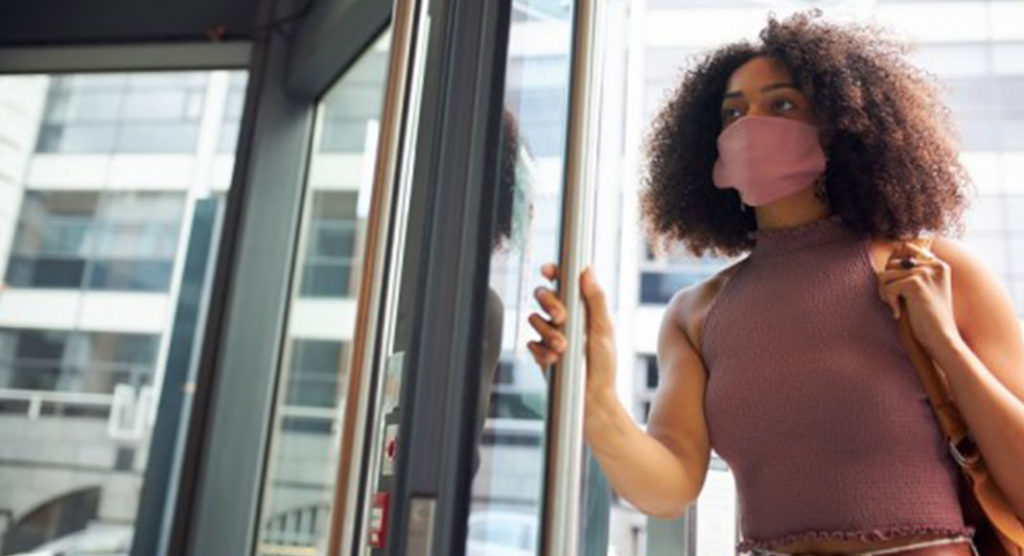
Mega Doctor News
By Rush University Medical Center
Newswise — As people continue to get vaccinated for COVID-19, the question “do I still need a mask?” is now being asked. And while it may be tempting to trash that face covering, the rise in COVID-19 cases due to the delta variant is causing experts to say, “not so fast.”
Because of the emergence of COVID-19 variants of concern in the United States, particularly the delta variant, the Centers for Disease Control and Prevention (CDC) has released new guidelines for vaccinated people. These new guidelines may bring some confusion and new questions. Who needs to wear a face covering? When and where should someone wear mask?
Michael Lin, MD, MPH, infectious disease expert at Rush University Medical Center, answers some of the most frequently asked questions about masking in a world with the COVID-19 vaccine.
Who should wear a mask?
With the recent changes by the CDC in masking recommendations, everyone, whether vaccinated or not will need to wear a mask at some point.
For people who are not vaccinated against COVID-19 the CDC recommends that they continue to wear a mask inside public places and continue to maintain a social distance of 6 feet.
While non-vaccinated people should be wearing masks indoors in public no matter what, vaccinated people will now need to wear masks indoors when community transmission of COVID-19 is high.
Lin explains that while the vaccine does protect you from COVID-19, newer variants can sometimes still cause infections among vaccinated people.
“Wearing a mask protects you against COVID-19, and this is important since the newer variants such as the delta variant, can sometimes cause ‘break-through’ infections.” Lin explains. “Wearing a mask also protects others, since new data shows that vaccinated persons infected COVID-19 are likely contagious.”
When and where should I wear a mask?
The CDC’s most recent guideline recommendations say that when the community rate of transmission is high, vaccinated people should be wearing masks indoors in public areas. This includes grocery stores, bars, restaurants, and indoor sporting events.
While these recommendations may be new, there are the other places the CDC has always recommend vaccinated people stay masked. According to the CDC, “Wearing a mask is required on planes, buses, trains, and other forms of public transportation traveling into, within, or out of the United States and while indoors at U.S. transportation hubs such as airports and stations.”
Wearing a mask when you don’t feel well is another time you should be wearing a mask around others. If your symptoms are similar to COVID-19, Lin says its best to stay home.
“If you don’t feel well because you have COVID-19 symptoms, you should get tested and stay home,” explains Lin. “When you are sick at home, wearing a mask is an important way to protect others in your household.”
Aside from COVID-19, continued masking can be a great way to protect yourself and others as the colder weather begins, and flu and cold season starts to make a comeback.
“There is good evidence that masking prevents not just COVID-19 but other respiratory viruses,” says Lin. “So, it makes sense to wear a mask if you are vulnerable or if you work in high risk settings such as health care.”
Masking is here to stay
While the country is slowly returning to life before the COVD-19 pandemic, some guidelines are still needed to protect everyone while COVID-19 is still a threat.
Being fully vaccinated is still your best weapon against COVID-19 but masking still plays an important role in protecting yourself and those around you. Even if you are fully vaccinated, being mindful of situations where transmission rates could be high — and continuing to wear a mask in those situations — can bring us one step closer to ending the pandemic once and for all.
Lin says that its best practice to follow public health recommendations about masking to protect yourself and others around you.
“Prevention works best when you have multiple layers of protection,” says Lin. “In situations where contagious COVID-19 variants such as the delta variant are spreading in your area, it makes sense to add additional protection such as masking.”








